INTRODUCTION
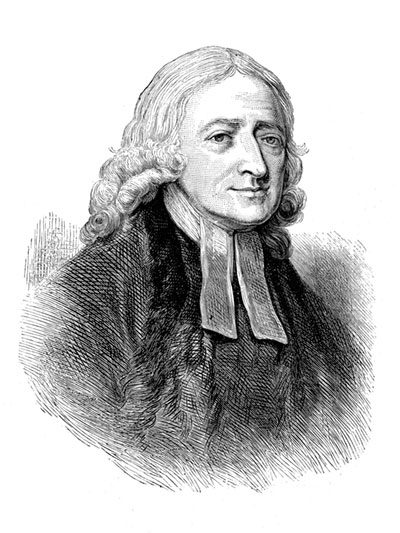
It is a simple fact that all through Christian history people have experienced a spiritual change of heart, bringing a new vitality to their lives, coming through conversion and mystical experience. Here is a famous example.
‘In the evening I went very unwillingly to a society in Aldersgate Street, where one was reading Luther’s preface to the Epistle to the Romans. About a quarter before nine, while he was describing the change which God works in the heart through faith in Christ, I felt my heart strangely warmed. I felt I did trust in Christ, Christ alone, for salvation; and an assurance was given me that He had taken away my sins, even mine, and saved me from the law of sin and death.’ (from John Wesley’s journal for 24th May 1738)
That strange and extremely personal momentary experience had momentous consequences. It transformed John Wesley from a serious and devout Anglican Christian and priest to a powerful evangelist whose preaching converted thousands of working people in Britain, founded the worldwide Methodist Church, and according to some historians, saved England from its own version of the French Revolution.
VARIETIES OF RELIGIOUS EXPERIENCE
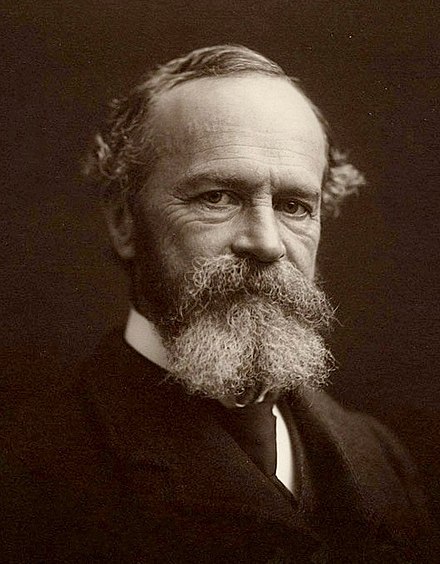
In 1901 William James, Harvard Professor of Psychology and Philosophy, gave the Gifford Lectures on Natural Religion in Edinburgh. They were published the following year as ‘The Varieties of Religious Experience – a Study In Human Nature’. It went through twenty reprints in just nine years. It is the most comprehensive and fascinating book with multitudes of individual personal experiences. As he says, “Personal experience (is) the exclusive subject of our study.” (p.379) (You can get it free on Kindle).
He discusses everything with a professional and respectful attitude. Although he includes Catholic witnesses and those of other faiths, his own viewpoint is as a North American Protestant. Here are his main headings: – feelings of objective presence, once-born and twice-born people, conversion, saintliness, mysticism.
Note: all page numbers refers to this work.
1. Feelings of Objective Presence
All but one examples were very positive: “We were on our sixth day of tramping and in good training …All at once I experienced a feeling of being raised above myself, I felt the presence of God … as if his goodness and his power were penetrating me altogether…” (p.68) “I have on a number of occasions felt that I had enjoyed a period of intimate communion with the divine… What I felt on these occasions was a temporary loss of my own identity, accompanied by an illumination which revealed to me a deeper significance than I had been wont to attach to life.” (p.70)
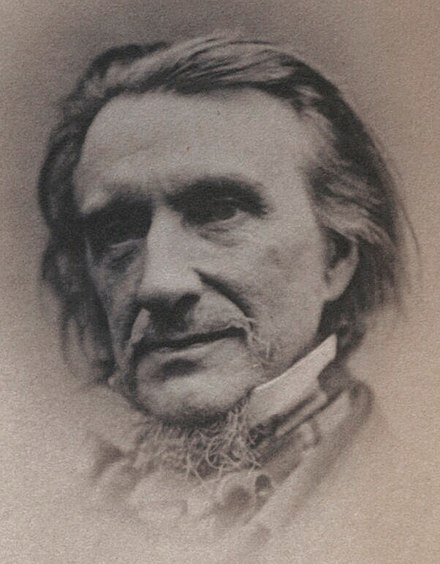
2. Once-Born and Twice-Born
Francis W Newman, writer and activist and brother of the Catholic convert John Henry Newman, wrote, “God has two families of children on their earth, the once-born and the twice-born.” The once-born have an optimistic view of life. “They see God, not as a strict Judge .. but as the animating Spirit of a beautiful and harmonious world…”. Their conversion will tend to be gradual, without notable crises, but no less valid for that.
Dramatic experiences of conversion tend to be encountered by those of an underlying pessimistic temperament. As an example of this temperament James quotes a letter originally written in French: “I awoke morning after morning with a sense of the insecurity of life that I never knew before.” (He had spoken of his experiences working in an insane asylum). “I remember wondering how other people could live, how I myself had ever lived, so unconscious of that pit of insecurity beneath the surface of life.” (p. 160-161)
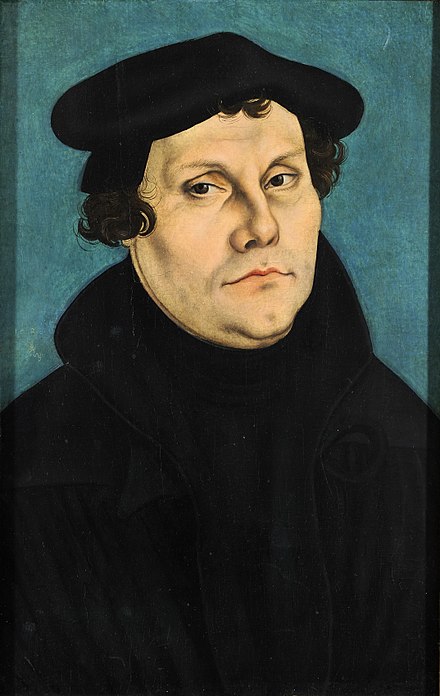
3. Conversion
a) Luther
Martin Luther, the originator of the Protestant Reformation in the 16th century, is a classic instance of the conversion of the twice-born: ‘Though I lived as a monk without reproach, I felt that I was a sinner before God with an extremely disturbed conscience… I did not love, yes, I hated the righteous God who punishes sinners… At last, by the mercy of God, meditating day and night, I gave heed to the context of the words namely, “In it the righteousness of God is revealed”… There I began to understand that the righteousness of God is that by which the righteous lives by a gift of God, namely by faith. … Here I felt that I was altogether born again and had entered paradise itself through open gates.’ (Martin Luther, Preface to his collected works 1545)
b) The process of conversion
William James describes conversion as ‘the process, gradual or sudden, by which a self, hitherto divided… becomes unified.’ (p.189) It typically brings about ‘a firmness, stability and equilibrium succeeding a period of storm and stress and inconsistency’. What happens is a ‘process of unification’ whether from unbelief to belief or sometimes from religion to incredulity. In both cases James assumes that a period of ‘subconscious incubation’ precedes the crisis. He writes of conversion as ‘the striking and sudden unification of a discordant self.’ (p. 483).
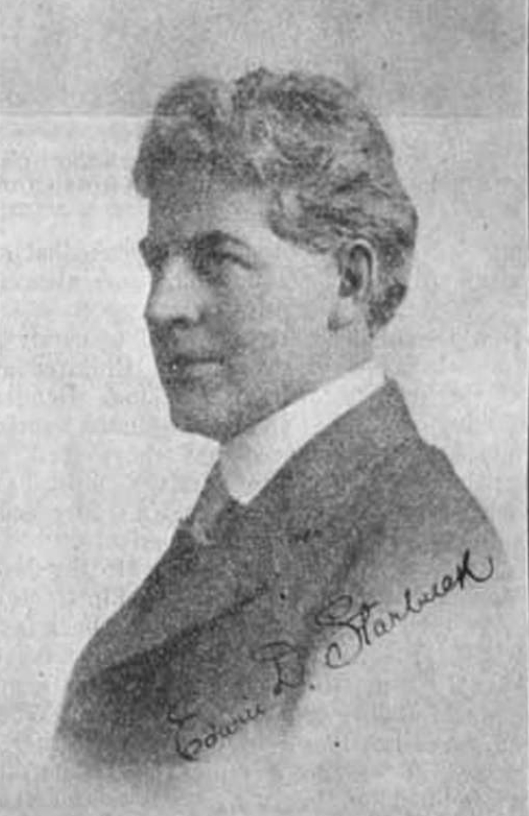
E D Starbuck (1866-1947) was an American educational psychologist who pioneered the use of questionnaire surveys to study religion. He found that the effect of conversion brings with it ‘a changed attitude towards life, which is fairly constant and permanent, although the feelings fluctuate.’ (p. 258) The one essential to any act of conversion towards the spiritual life is an act of self-surrender. As Starbuck put it, ‘The personal will must be given up.’ (p. 208) An example he quoted was, “I simply said, ‘Lord, I have done all I can; I leave the whole matter with Thee;’ and immediately there came to me a great peace.”
Carl Hilty (1833-1909) was a Swiss constitutional lawyer and theologian. In 1901 he published the book ‘Glück’ (Luck or Happiness). In it he wrote, ‘the compensation for the loss of that sense of personal independence which we so unwillingly give up, is the disappearance of all fear from one’s life and an inexplicable feeling of an inner security.’ (p.275)
c) Two types of conversion
Starbuck described two main types of conversion, one being ‘escape from sin’; the other being ‘spiritual illumination’. The former tends to be associated with large meetings and powerful preachers, from John Wesley to Billy Graham. The latter seems to be the prime mode expected in the Alpha course and the Charismatic movement. Both can be life-changing.
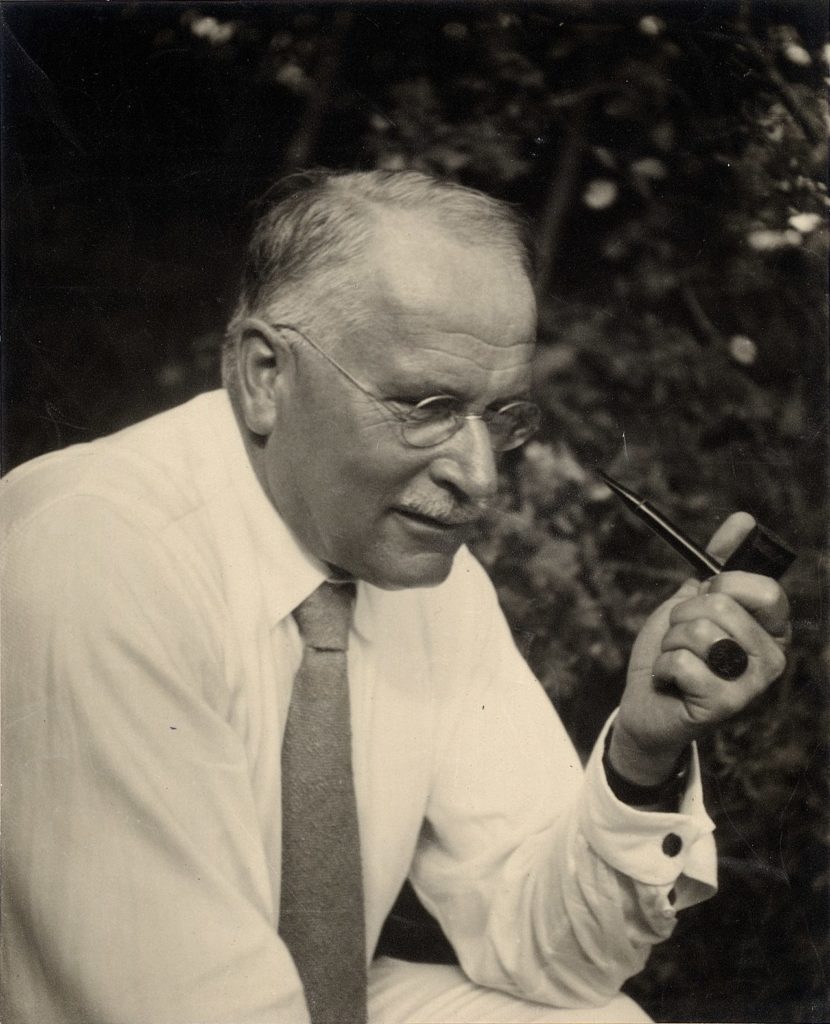
d) Psychology and Religion
‘Psychology and religion both admit that there are forces seemingly outside the conscious individual that bring redemption to his life… Psychology defines these forces as ‘subconscious’… Christian theology … insists that they are direct supernatural operations of the Deity.’ (p.211)
Psychology cannot always help, according to the famous psychotherapist C G Jung. Working with an alcoholic Rowland H, Jung said, You have the mind of a chronic alcoholic. I have never seen one single case recover where the state of mind exists to the extent that it does in you… (But) once in a while alcoholics have had what are called vital spiritual experiences… I have been trying to produce some such emotional rearrangement within you… but I have never been successful with an alcoholic of your description.” (Alcoholics Anonymous p.27).
e) An Example
There are thousands, possibly millions of accounts to choose from. Here is the experience Sam Follett, an Anglican pastor currently serving at HTB Queens Gate.

‘My father was a vicar. I grew up in a Christian home but thankfully my parents did not pressure me to be a Christian, though I went to church with them and was familiar with it. When I was twelve, I went to an event for youth groups in St Albans. It was actually held in my father’s church. There was some worship and a talk, which left the impression that God was interested in a personal relationship with us. Then we were asked to go off on our own with just a candle. I prayed in my head, “If you’re real and if you are actually interested in a relationship with me, please let me know.” And he did. I sensed a warmth which began in my heart and spread all over my body, bringing a sense of peace and knew that I was loved. I had the conviction that you had to be different, that’s what turning to Christ meant. Self-confidence and knowing that I was known replaced previous insecurity and feeling misunderstood. I had vision and purpose , and a desire to serve.’
This happened when Sam was twelve. It is noteworthy how untheological, how personal the experience was, and how long-lasting its effects.
4. SAINTLINESS
Saintliness, or sanctification, is the expected consequence of conversion. Williams James opens his chapter on saintliness by saying that ‘the best fruits of religious experience are the best things that history has to show.’ (p. 259)

Of course, we will always be subject to the two basic imperatives of human nature, the urge to grab/get, and the impulse to give. That tension will be with us to the end of our lives. But the experience of conversion makes giving the prime value of our lives.
It is powerfully expressed in St Paul’s letter to Christians in Galatia (c. 55 CE):
‘Live by the Spirit, I say, and do not gratify the desires of the flesh. (Paul basically means the ego). For what the flesh desires is opposed to the Spirit, and what the Spirit desires is opposed to the flesh… Now the works of the flesh are obvious: fornication, impurity, licentiousness, idolatry, sorcery, enmities, strife, jealousy, anger, quarrels, dissensions, factions, envy, drunkenness, carousing, and things like these…. By contrast, the fruit of the Spirit is love, joy, peace, patience, kindness, generosity, faithfulness, gentleness, and self-control… If we live by the Spirit, let us also be guided by the Spirit.’ (Galatians 5.16-25 NRSV, edited)
(Part of Paul’s letters, c. 200 CE)
5. MYSTICISM
a) Four Marks
What are ‘mystical states of consciousness’? William James talks about ‘consciousness of illumination’ as being the essential property of them. (p. 408n). ‘We feel them as reconciling, unifying states.’ (p.416) He proposes four marks which can justify an experience as being mystical.
Ineffability. The person talking about such experiences may say that they defy expression. They are ‘more like states of feeling than states of the intellect’.
Noetic quality. To those that experience them they also seem to be states of knowledge.
Transiency. Such states cannot be sustained for long… Half and hour or at most an hour or two seems to be the limit beyond which they fade into the light of common day.
Passivity. Once the characteristic sort of consciousness has set in, the (person) feels as if his own will were in abeyance, and indeed sometimes as if he were grasped and held by a superior power. (pp. 380-381)
b) Cosmic Consciousness
Such experiences are instances of a sort of ‘cosmic consciousness’ which overtakes some people.
‘An officer in our police force told me that many times when off duty, and on his way home in the evening, there comes to him such a vivid and vital realisation of his oneness with this Infinite Power, and this Spirit of Infinite Peace so takes hold of and so fills him, that it seems as if his feet could hardly keep to the pavement, so buoyant and so exhilarated does he become by reason of this inflowing tide.’ (p. 393)
“I had a long drive in a hansom to my lodging…. All at once, without warning of any kind, I found myself wrapped in flame-coloured cloud… There came upon me a sense of exultation, of immense joyousness… I saw that the universe is not composed of dead matter, but is, on the contrary, a living Presence… I saw that all men are immortal,.. that all things work together for the good of each and all…” (p. 399, quoting Bucke: ‘Cosmic Consciousness’)
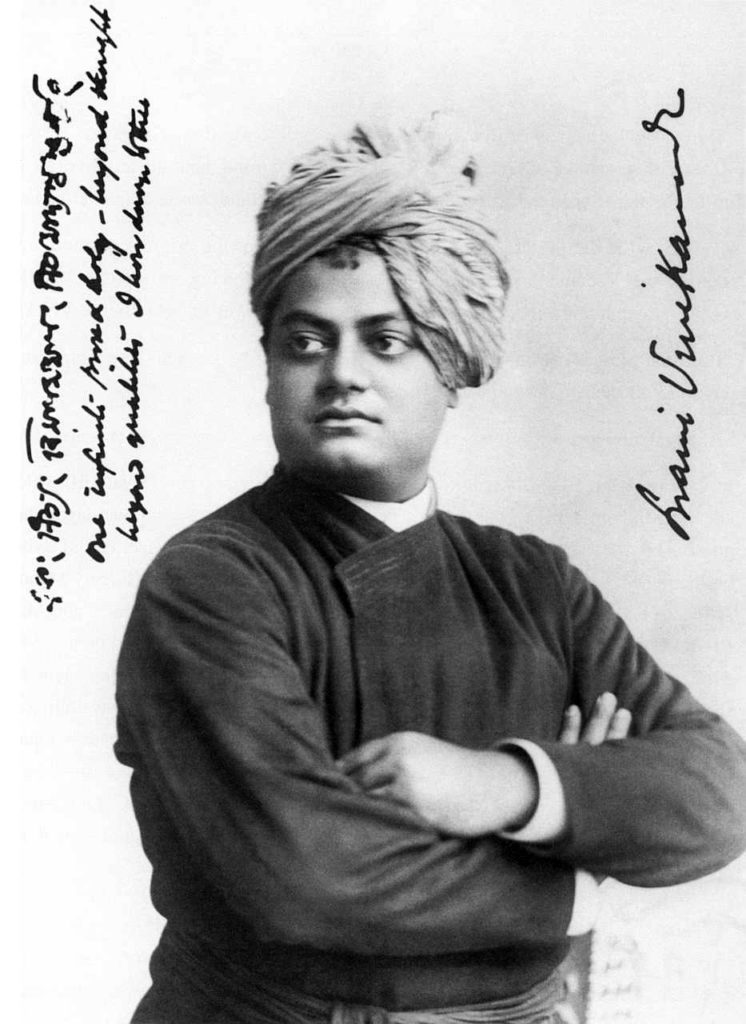
c) Other Religions
Similar experiences are encountered in other faiths.
The Hindu Swami Vivekananda (1863 – 1902) wrote, “All the different steps in yoga are intended to bring us scientifically to the superconscious state or samadhi..”
Buddhists have the special word ‘dhyana’ for higher stages of contemplation. These continue until one reaches ‘the end of both idea and perception…’
In Islam it is Sufism which possesses the mystical tradition. The 11th century (C.E.) Persian philosopher Al-Ghazzali wrote, “The Science of the Sufis aims at detaching the heart from all that is not God, and at giving to it the sole occupation of the meditation of the divine being.’ (p.402)
d) What kind of truth?
Are such mystical states convincing evidence of a super-sensory realm? William James makes three points:
1 ‘Mystical states … usually are absolutely authoritative over the individuals to whom they come’
2 ‘Those who stand outside (have no duty) to accept there revelations uncritically.’
3 ‘Non-mystical or rational consciousness, based upon the understanding and the senses alone, (are shown to be) only one kind of consciousness. (Mystical experiences) open out the possibility of other orders of truth.’ (p. 422-423)

A CONCLUSION
What does this discussion about conversion and mystical experiences signify in today’s world?
In May 2023 I met Sabine, a pastor in east London, at St Mellitus’ College. We walked to Earls Court station talking about the questions that were in people’s mind in the past like, ‘Is is true?’ She commented that young people came into her church with one simple question, ‘What’s in it for me?’ This sounds merely selfish. But it actually expresses a quest for something personal, something that can change their lives. The message of conversion and mystical experience relates directly to this desire. Perhaps this is what will survive of the church after the current crisis.
